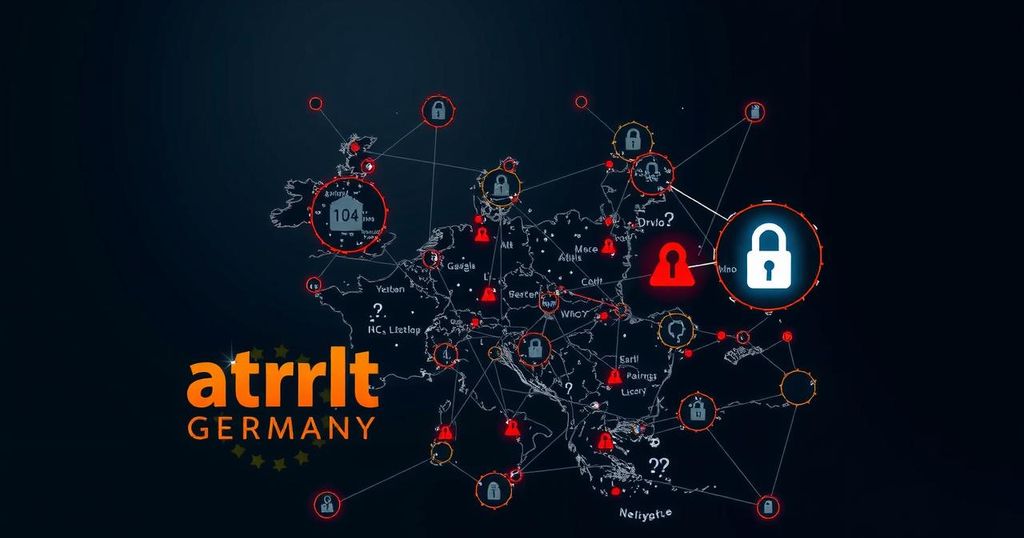In a rising wave of crime, Germany has become a prime target for ATM bombings, with thieves blowing up cash machines in residential areas at alarming rates. Recent incidents have led to substantial cash losses and severe collateral damage. Law enforcement agencies like Europol are ramping up efforts against these sophisticated criminal syndicates, enhancing security measures while also introducing stricter penalties for offenders. Despite this, the cultural attachment to cash in Germany continues to drive the frequency of these audacious robberies.
In the quiet German town of Kronberg, the early morning hours of March 23, 2023, turned chaotic as a series of explosions shattered the stillness. Residents, roused from their slumbers, emerged into a harsh reality where an ATM had been blown apart, its cash scattered like forgotten dreams. Thieves made off with €130,000 in cash but left behind €500,000 worth of wreckage, sending ripples of fear through the community. Witnesses reported shadowy figures fleeing the scene in a black getaway car, darting towards the highway as the skies filled with debris. This incident was not an isolated event; it mirrored a troubling trend sweeping across Germany. Criminal gangs increasingly favor ATM heists over traditional bank robberies, which now feel outdated compared to the audacity of blowing up cash machines. With Germany as Europe’s largest economy, its thriving cash culture presents a tempting target — there is a staggering 51,000 ATMs across the nation, making these machines lucrative prizes for criminals. In recent years, German police reported an explosive surge in such heists, with gullible criminals attempting them more than once a day. In a concerted crackdown, Europol has targeted these sophisticated criminal syndicates, leading to the recent arrest of three individuals involved in orchestrated attacks across Germany, France, and the Netherlands. These gangs utilized explosives derived primarily from fireworks, demonstrating a reckless disregard for safety as collateral damage soared to €28.4 million in 2023 alone. The attacks focused on quiet, residential areas, wreaking havoc on communities while cash-hungry thieves operated under the cover of darkness. A particularly tragic incident unfolded in Wiernsheim when a robbery resulted in a high-speed chase down the wrong side of a motorway, culminating in a fatal crash that left one innocent passenger dead and the driver sentenced to life imprisonment. The exponential rise in ATM bombings in Germany has forced law enforcement to adapt; the government has intensified penalties for such crimes, now mandating a minimum two-year prison term for thieves. Despite the gradual shift towards digital payments observed in much of Europe, Germany clings to its cash traditions, influenced by a cultural reluctance to abandon physical money. A significant percentage of transactions remain cash-based, rooted in trust and privacy. This deep-seated connection to physical currency makes the nation an inviting terrain for criminal opportunists. In response to a concerning uptick in crimes, banks have poured over €300 million into enhancing security measures, grappling with a game of catch-up against cunning criminals who exploit any gap in safety. As law enforcement intensifies their strategies and institutions bolster security, the battle to secure Germany’s ATMs continues, poised against a backdrop of evolving crime dynamics that threaten the fabric of peaceful communities.
ATM bombings in Germany have surged, largely due to a cultural inclination toward cash payments and the vast network of ATMs available to the public. Unlike in many neighboring countries that have embraced digital payments, Germany retains a significant preference for cash, making it a lucrative target for criminal gangs looking to minimize risks while maximizing gains. The impact of these heists extends beyond monetary loss, bringing physical danger and psychological fear to communities who witness the chaos of such explosions. Enhancing security measures is paramount as authorities grapple with transnational crime enabled by the proximity of nations with lax regulations.
Germany has transformed into a hotspot for ATM robberies following its ongoing reliance on cash transactions and a dense ATM network. Despite intensified law enforcement efforts and increased penalties for the perpetrators, the audacity and frequency of these crimes illustrate a troubling trend. The ramifications extend beyond financial loss; they pose severe risks to public safety. A collective response, combining advanced technology and legal reforms, may be essential to reclaim safety and security for communities impacted by this wave of organized crime.
Original Source: www.cnn.com

Leave a Reply